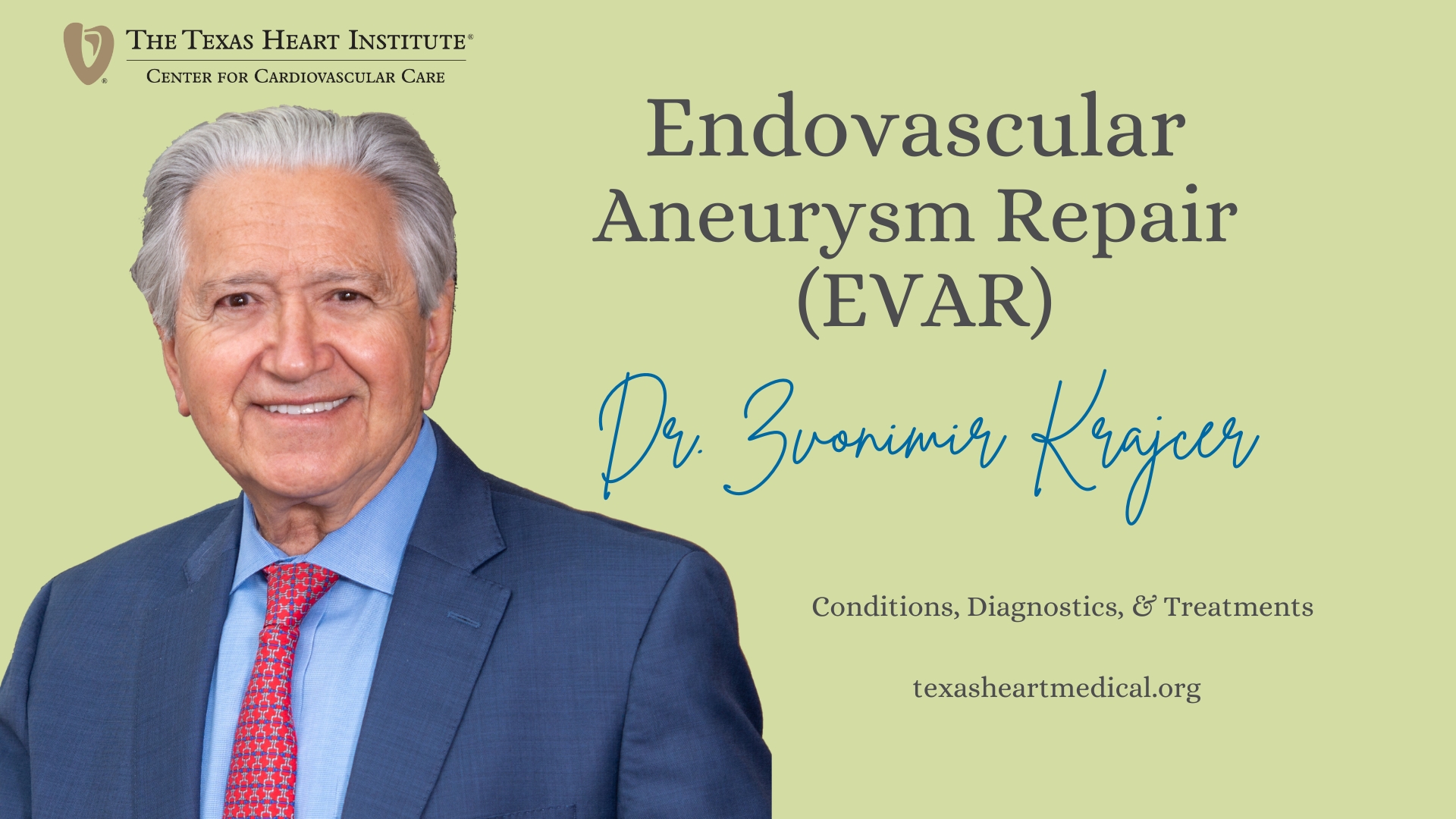Aortic Aneurysm Program
For over 25 years, our experts have led the refinement of percutaneous endovascular aortic repair (PEVAR) and have performed thousands of successful procedures.
An abdominal aortic aneurysm (AAA) is a disease that may not cause symptoms until it has progressed to a dangerous degree. Aneurysms form when the wall of the artery weakens and bulges outward. This condition can become life-threatening if the aneurysm grows large enough to rupture, resulting in massive internal bleeding. Since the aorta is the largest artery in the body, patients with a ruptured aortic aneurysm have an 80-90% risk of immediate death.
In 1996, Dr. Zvonimir Krajcer conducted the world‘s first percutaneous abdominal aortic aneurysm repair in a cardiac catheterization lab under conscious sedation and local anesthesia, and he continues to pioneer several lifesaving treatments for aortic aneurysm patients today. The recovery time after these minimally invasive procedures is shorter than after traditional open surgery for an aortic aneurysm.
Our doctors evaluate each patient carefully to determine the best and safest approach.
Nationally Recognized Heart Care
Doctors at The Texas Heart Institute Center for Cardiovascular Care are leaders in treating patients with aortic aneurysms and have spearheaded some of the most innovative treatments in the medical field today.
Texas Heart Institute is recognized nationally and internationally for developing minimally invasive interventional techniques and other strategies for preventing and treating an aortic aneurysm.
We welcome our local, regional, and global community by ensuring that they have access to the best care for their needs.
Research to Improve Treatment Outcomes
Through our practice, you may have the opportunity to participate in clinical trials. Texas Heart Institute’s clinical trials include experimental treatments that may lead to better patient care for people with aortic aneurysms. This deadly condition can afflict people at any age, making our work in collaboration with the Texas Heart Institute research teams even more critical.
Learn More about Participating in Clinical Trials

